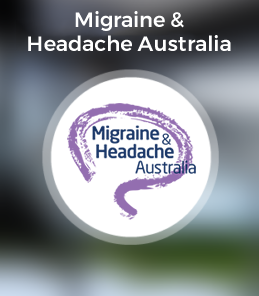Description
Acquired brain injury includes a complex group of medical and surgical problems that are caused by trauma to the head. Some of these problems result from a direct impact to a particular portion of the skull or brain: a skull fracture occurs when the bone of the skull cracks or breaks, and in a depressed skull fracture pieces of broken skull press into the brain.
This can cause bruising of the brain tissue, called contusion. Others problems result from indirect mechanisms — the stretching and tearing of blood vessels or white matter fibres, the “bouncing” of the brain against the inside of the skull, or the secondary swelling of the brain due to injury-related chemical changes. Shaken baby syndrome is a severe form of head injury that occurs when a baby is shaken forcibly enough to cause extreme contusions. Damage to a major blood vessel within the head can cause a haematoma, or bleeding into or around the brain.
Severity can range from mild concussion to extreme coma or even death. A coma is a deep state of unconsciousness. Symptoms of brain injury may include loss of consciousness, dizziness, drowsiness, vomiting, headache, nausea, confusion or other cognitive problems. In the longer term difficulty with concentration and short-term memory, altered sleep patterns, a change in personality, depression, irritability, and other emotional and behavioural problems may become evident. Some people may have seizures as a result of brain injuries.
Treatment
Immediate treatment for brain injury may involve surgery to control bleeding in or around the brain, monitoring and controlling of pressure inside the head (intracranial pressure), other methods of ensuring blood flow to the brain, and treating the body for other injuries or infections. Seizures may need long-term anticonvulsant treatment.
Prognosis
The outcome of acquired brain injury depends on the cause of the injury and on the location, severity, and extent of neurological damage, and can range from full recovery to death. Long term consequences may include concentration problems, memory loss, personality and behaviour disorders, and speech and language impairment; these may result in loss of employment, lack of social opportunities, isolation and withdrawal and impaired family relations.
Some of the Traumatic Brain Injury research we have funded
In 2022 Dr Jamie Beros was the recipient of Brain Foundation grant funding for research into Concussion and TBI– click for more.
In 2022 Dr George Opie was the recipient of Brain Foundation grant funding for research into Concussion and TBI– click for more.
In 2021 Dr Remika Mito was the recipient of Brain Foundation grant funding for research into Concussion and TBI– click for more.
In 2019 Dr Amar Abdullah was the recipient of Brain Foundation grant funding for research into TBI– click for more.
In 2019 Dr Claire Shepherd was the recipient of Brain Foundation grant funding for research into TBI– click for more.
In 2019 Dr Mujun Sun was the recipient of Brain Foundation grant funding for research into TBI– click for more.
In 2018 Dr Jana Vukovic was the recipient of Brain Foundation grant funding for research into TBI– click for more.
Further Information and Support:
Click here for the latest Australian research papers on Acquired Brain Injury.
Brain Injury Australia
PO Box 220, Marrickville NSW 1475
Tel 1800 BRAIN1
Email admin@braininjuryaustralia.org.au
www.braininjuryaustralia.org.au
Headway
6 Percy Street, Bankstown NSW (PO Box 894, Bankstown NSW 1885 )
Tel (02) 9790 0046 or (02) 9790 0344
BrainLink Services Ltd
The Nerve Centre, 54 Railway Road, Blackburn VIC 3130
Tel 1800 677 579
Facsimile (03) 9845 2882
Email info@brainlink.org.au
www.brainlink.org.au
Synapse – Australia’s Brain Injury Organisation
Address: Level 1/262 Montague Road, West End QLD 4101
Mail: PO Box 3356, South Brisbane QLD 4101
Tel 1800 673 074
Email info@synapse.org.au
synapse.org.au
Brain Injury Association of Tasmania
83 Melville Street, Hobart, TAS 7000
PO Box 4580, Bathurst Street PO, Hobart, TAS 7000
Tel: 03 6230 9800
Email enquiries@biat.org.au
www.biat.org.au
National Assistance Card
1 Liverpool Street, Hobart, TAS 7000
PO Box 4580, Bathurst Street PO, Hobart, TAS 7000
Tel: 1300 242 827
Email info@nationalassistancecard.com.au
https://www.nationalassistancecard.com.au/
Tasmanian Acquired Brain Injury Services (TABIS)
PO Box 329
Mowbray Heights
Launceston TAS 7248
Tel: (03) 6326 2022
Email: reception@tabis.org.au
Head Injury Council of Australia Inc (HICOA)
PO Box 82, Mawson ACT 2607
Tel (02) 6290 2253
Email hicoa@asisonline.net.au
For children
Brain Injury Rehabilitation Program for Children, New Children’s Hospital,
Westmead NSW 2145
Dr Steve O’Flaherty (02) 9845 2132
Sally Hough (Rehab Officer) (02) 9845 2132
Read some amazing personal stories about brain injuries:
braininjuryaustralia.org.au/brain-injury-2/stories-living-brain-injury/
Reviewed by: Associate Professor Nicholas Dorsch, Department of Surgery, Westmead Hospital, Australia
DISCLAIMER: The information provided is designed to support, not replace, the relationship that exists between a patient / site visitor and his / her existing health care professionals.





 The Brain Foundation is the largest, independent funder of brain and spinal injury research in Australia. We believe research is the pathway to recovery.
The Brain Foundation is the largest, independent funder of brain and spinal injury research in Australia. We believe research is the pathway to recovery.